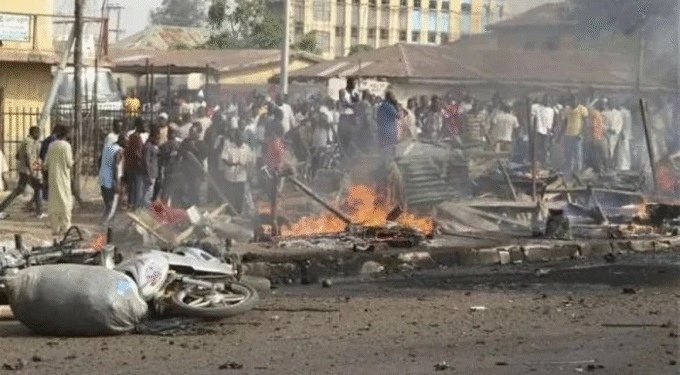At least 23 people, including women and children, were killed on Monday following multiple Boko Haram attacks in Borno State, Nigeria. The incidents occurred in Chibok and Kala Balge Local Government Areas, with several others sustaining injuries.
In Chibok, seven men were shot dead during a third-day prayer ceremony held in honour of a late community leader. According to eyewitnesses, the mourners had gathered around 6 p.m. when Boko Haram insurgents stormed the venue and opened fire, causing chaos and fatalities.
Elsewhere, in Kala Balge, an improvised explosive device (IED) detonated along a travel route near Rann, the LGA headquarters, killing a number of commuters, including six children and four women. The IED, suspected to have been planted by Boko Haram militants, exploded when vehicles en route to Gamboru Ngala passed over it—approximately 11 kilometers from Rann, near the Lake Chad border.

Local Civilian Joint Task Force (CJTF) sources reported that additional victims—one woman, one man, and a child—sustained injuries and were taken to nearby medical facilities in Rann and Gamboru for urgent treatment.
The remote location of Kala Balge, coupled with poor road infrastructure and impassable routes during the rainy season, continues to pose significant security challenges. The region remains vulnerable to terrorist activity, particularly due to its proximity to the porous borders of Lake Chad.
During a recent visit by federal government officials and security chiefs, Borno State Governor Babagana Zulum reiterated concerns over the ease with which insurgents cross Nigeria’s borders, calling for urgent intervention to tighten border control.
These latest attacks come just days after Boko Haram militants killed 14 farmers and two CJTF members in Gwoza LGA. On Sunday, another 10 CJTF members were killed in an ambush between Hawul in Borno State and Garkida in Adamawa.
The spate of violence underscores the persistent threat posed by insurgent groups in the region, despite ongoing military operations.









